This site is being reviewed and updated as needed to comply with President Trump's executive orders.
 | ToolkitsThe Toolkits section consists of multiple components to assist APS programs across policy and practice on a single topic. Tip sheets, presentation templates, sample policies and more are designed to be resources that investigators and administrators may use to enhance their programs practice and policy. |
APS Workload Toolkit
Historically, APS programs have struggled to understand their workload needs and how to successfully manage them. In response, the APS TARC conducted a workload needs assessment and prepared an APS Workload Toolkit to assist APS programs with understanding, projecting, and managing their workload. This toolkit consists of a spreadsheet supported by detailed instructions. The instructions provide definitions and explain how to use the tool. The APS TARC also presented a webinar, linked below, with an overview of the tool. The tool consists of three parts, each on a separate worksheet/tab of the spreadsheet:
- Understand Workflow – This tool provides a beginning framework to understand the steps in your workflow process. Better understanding of workflow will result in better projections of workload needs and management.
- Project the Number of Needed FTEs – This tool provides metrics and instructions for estimating the number of needed FTEs for caseworker position(s).
- Manage Workload – This tool provides concepts and metrics for managing — assessing, monitoring, adjusting — workload of casework staff. Some of the data, particularly the metrics in the caseload/caseflow section of the tool, is used to project the number of needed FTEs.
The APS TARC is available to state APS programs, upon request, to provide additional support for implementation of the tool.
Workload Toolkit Instructions (PDF | 937 KB) - Document explaining the workload tool and how to use it.
Workload Toolkit Tip Sheet (PDF | 205 KB) - Brief instructions/tips on using the Workload Tool.
Workload Tool (XLSX | 48 KB) - The workload tool in spreadsheet format.
Overview of the APS Workload Tool (webinar recording) - Recording of the September 2024 webinar overview of the workload tool.

New APS Administrators Toolkit
Whether you are new to the field or simply new to administering a program, managing a state or local adult protective services (APS) program can feel like a daunting task when faced with the daily challenges of staffing, including training and onboarding new professionals, program capacity, quality assurance, and meeting the health and safety issues of clients and professionals. This toolkit intended to help orient new administrators to the world of APS.
Brief - APS Admin 101: Resources and Information for New Adult Protective Services Administrators (PDF | 1 MB) - This brief contains information and resources on a variety of topics from the history of APS to federal resources that can support APS programs and will provide a foundation for understanding some of the complexities of APS program administration.
Frequently Used Acronyms in Adult Protective Services (PDF | 275 KB) - This document lists frequently used acronyms in adult protective services administration.
Final Rule: Federal Regulations for APS Programs - On May 7, 2024, the Administration for Community Living (ACL) published a final rule to establish the first-ever federal regulations for APS. The new regulations promote high-quality APS and will improve consistency in services across states. With the final rule, ACL aims to support the national network that delivers APS, with the ultimate goal of better meeting the needs of adults who experience, or are at risk of, maltreatment or self-neglect.
Voluntary Consensus Guidelines for State APS Systems - These Guidelines, authored by ACL, are designed to provide APS administrators with recommendations from the field about quality practice.

APS Training Toolkit
It is a very exciting time in the field of APS training and this revised toolkit brings you up to date with the latest information and resources covering all things APS training. The focus is on nationally available, no or low-cost curriculum and training materials, webinars, videos, etc.
This toolkit is appropriate for APS administrators, trainers, supervisors, and frontline staff. It includes briefs, training resource lists, training development and delivery tools, sample training policies and procedures, and a sample training plan. If you have comments, questions or need additional information, please contact us.
Brief - Professional APS Training (PDF | 813 KB) - This brief outlines what is available to APS programs to use for no or low cost. It includes resources such as a list of core competencies and training videos, as well as information about advanced and supervisor core training.
Training Resources - A list of trainings from a variety of sources.
Training Development and Delivery Tools - A list of resources to guide development and delivery when creating trainings.
Sample Policies and Procedures (DOCX | 62 KB)- A sample policy and procedure document addressing training of staff.
Training Plan Sample (PDF | 280 KB) - A suggested training plan format for your organization.
Brief - Training Supervisors in Adult Protective Services (2020) (PDF | 404 KB)

APS Intake Toolkit
Intake is the “gateway” to the APS system and is an important function of any program. The purpose of this toolkit is to provide a resource to administrators to consider implementing or enhancing current APS practices within the intake unit or pertaining to intake function.
Brief - Intake: The Gateway into APS (PDF | 859 KB) - Intake is the means adult maltreatment reports are received into the APS program. Read about the steps involved in intake and resources for putting a system in place. This brief examines information gathering, assigning, staffing, training and more.
Final Rule: Federal Regulations for APS Programs - On May 7, 2024, the Administration for Community Living (ACL) published a final rule to establish the first-ever federal regulations for APS. The new regulations promote high-quality APS and will improve consistency in services across states. With the final rule, ACL aims to support the national network that delivers APS, with the ultimate goal of better meeting the needs of adults who experience, or are at risk of, maltreatment or self-neglect.
Webinar Recording - APS TARC Promising Practices Spotlight Series: Colorado - This webinar highlights promising practices from the State of Colorado, who received an APS Enhancement Grant from the US Department of Health & Human Services, Administration for Community Living in 2015. For the grant, Colorado focused resources on at-risk adults by enhancing the APS intake process and assessment tool. Specifically, Colorado expanded the use of its case management system.
Webinar Recording - Using Standardized Tools in APS Case Management and Supervision - This webinar presented perspectives from three states on how they use a set of structured assessment and planning tools to increase consistency in practice, improve outcomes for vulnerable adults, and assist casework supervisors in their daily work duties. Each state differs in how they use the tools, and shared their experiences related to how the tools inform case-specific supervision, and support intake and screening decisions as well as data and quality assurance activities.

APS Quality Assurance Toolkit
This toolkit is a resource for adult protective services administrators. The toolkit includes a compilation of CQI examples, methodology resource list, sample APS policies and procedures, briefs, blogs, and webinars on quality assurance and data management.
Brief - Performance Management Cycle for APS Supervisors (PDF | 995 KB)- This brief addresses the performance management cycle and includes tips for making expectations clear, documenting performance, evaluating home visits, and more.
Brief - Quality Assurance in Adult Protective Services (PDF | 577 KB) - This brief addresses approaches and benefits to quality assurance (QA) as well as considerations in developing a QA program.
Continuous Quality Improvement Examples (PDF | 275 KB) - Examples of processes, program and services, as well as input and output measures.
Sample Policies and Procedures (PDF | 307 KB) - A sample policy and procedure document addressing quality improvement.
Resource List (PDF | 229 KB) - Resources for instituting continuous quality improvement.

APS Public Awareness Toolkit
Public awareness campaigns can be an effective way to raise awareness of the maltreatment of older adults/adults with disabilities and adult protective services programs. This toolkit includes a brief that addresses planning and potential activities to include. It also includes links to ensure your campaign incorporates the correct message and examples of program campaigns.
Brief - APS Public Awareness: Strategies for Success (PDF | 906 KB)- This brief examines the benefits and risks of raising public awareness, what to consider in planning for your campaign, and what activities to potentially include.
Webinar - How to Reframe Elder Abuse - The National Center on Elder Abuse (NCEA) Reframing Elder Abuse project is an initiative to change the way we talk about elder abuse. During this webinar, the presenters review best practices in public communications on elder abuse based on an evidence-based strategy and practical tips and resources for application.
Flyers & Presentations - Department of Justice, Elder Justice Initiative Public Outreach page with downloadable handouts and presentations.
World Elder Abuse Awareness Day (WEAAD) - NCEA resource page with many resources involving a WEAAD campaign.
Campaign Examples - This page provides examples of public awareness campaigns from across the US.
Last Modified: 02/16/2026

